 Nigeria gained independence from Britain in 1960, and its first years of autonomy were characterized by severe conflict between its many ethnic groups. In 1967, the predominantly Igbo Eastern Region of Nigeria seceded amid fears that the rival Hausa tribe was gaining increasing power in Nigeria’s central government. Though the newly proclaimed Republic of Biafra made advances early in the war, it was no match for Nigeria’s forces. What medical organization was established as a result of the war? Discuss
Nigeria gained independence from Britain in 1960, and its first years of autonomy were characterized by severe conflict between its many ethnic groups. In 1967, the predominantly Igbo Eastern Region of Nigeria seceded amid fears that the rival Hausa tribe was gaining increasing power in Nigeria’s central government. Though the newly proclaimed Republic of Biafra made advances early in the war, it was no match for Nigeria’s forces. What medical organization was established as a result of the war? Discuss
Source: The Free Dictionary
 Introduced in 1937 by the Hormel Foods Corporation as “Hormel Spiced Ham,” the precooked, canned-meat product was renamed “SPAM” when it began to lose market share. SPAM is now popular worldwide and is sold in more than 40 countries, including South Korea, where it is said to be so popular that it is sometimes given as a gift. The product has become a part of pop culture as the butt of many jokes and urban legends about mystery meat. What ingredients are used to make SPAM?
Introduced in 1937 by the Hormel Foods Corporation as “Hormel Spiced Ham,” the precooked, canned-meat product was renamed “SPAM” when it began to lose market share. SPAM is now popular worldwide and is sold in more than 40 countries, including South Korea, where it is said to be so popular that it is sometimes given as a gift. The product has become a part of pop culture as the butt of many jokes and urban legends about mystery meat. What ingredients are used to make SPAM?  In 1845, Thoreau, an American author and naturalist, built himself a cabin on the shore of Walden Pond in Massachusetts. He spent the next two years, two months, and two days there, observing nature, reading, and writing. He also kept a journal that he later used to write his masterpiece, Walden, or Life in the Woods, which compresses his time there into a single calendar year and uses the passage of the seasons to symbolize human development. What were Thoreau’s enigmatic last words?
In 1845, Thoreau, an American author and naturalist, built himself a cabin on the shore of Walden Pond in Massachusetts. He spent the next two years, two months, and two days there, observing nature, reading, and writing. He also kept a journal that he later used to write his masterpiece, Walden, or Life in the Woods, which compresses his time there into a single calendar year and uses the passage of the seasons to symbolize human development. What were Thoreau’s enigmatic last words?  Extinct since 1844, the great auk was a flightless seabird once found in great numbers on rocky islands off eastern Canada, Greenland, Iceland, Norway, Ireland, and Britain. The bird was hunted on a significant scale by humans for food, eggs, and down since at least the 8th century, but massive exploitation for its down and the collecting of its eggs eventually contributed to the demise of the species. Specimens are now exhibited in many museums. Where was the last pair of great auks killed?
Extinct since 1844, the great auk was a flightless seabird once found in great numbers on rocky islands off eastern Canada, Greenland, Iceland, Norway, Ireland, and Britain. The bird was hunted on a significant scale by humans for food, eggs, and down since at least the 8th century, but massive exploitation for its down and the collecting of its eggs eventually contributed to the demise of the species. Specimens are now exhibited in many museums. Where was the last pair of great auks killed? 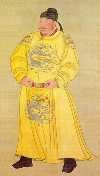 After Tang Dynasty founder Emperor Gaozu named his son Li Jiancheng the crown prince, an intense rivalry developed between him and his younger brother, Li Shimin. Each prince was advised by his staff members to act first against the other, and, in 626, believing that Li Jiancheng was plotting to kill him, Li Shimin ambushed and killed the crown prince and another brother of theirs at Xuanwu Gate, which led to Emperor Gaozu’s palace. What did the emperor do when he learned of his sons’ deaths?
After Tang Dynasty founder Emperor Gaozu named his son Li Jiancheng the crown prince, an intense rivalry developed between him and his younger brother, Li Shimin. Each prince was advised by his staff members to act first against the other, and, in 626, believing that Li Jiancheng was plotting to kill him, Li Shimin ambushed and killed the crown prince and another brother of theirs at Xuanwu Gate, which led to Emperor Gaozu’s palace. What did the emperor do when he learned of his sons’ deaths? 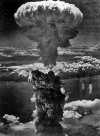 The Treaty on the Non-Proliferation of Nuclear Weapons is an international agreement to limit the spread of nuclear weapons. It was originally signed by the US, Britain, the USSR, and 59 other countries in 1968. The major signatories agreed not to help nonnuclear states obtain or produce nuclear weapons, while the nonnuclear signatories agreed not to try to obtain them. The treaty was extended indefinitely in 1995, and nearly 190 countries are now party to it. Which nations have never signed it?
The Treaty on the Non-Proliferation of Nuclear Weapons is an international agreement to limit the spread of nuclear weapons. It was originally signed by the US, Britain, the USSR, and 59 other countries in 1968. The major signatories agreed not to help nonnuclear states obtain or produce nuclear weapons, while the nonnuclear signatories agreed not to try to obtain them. The treaty was extended indefinitely in 1995, and nearly 190 countries are now party to it. Which nations have never signed it? 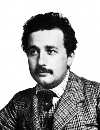 In physics, the theory of special relativity generalizes Galileo’s principle of relativity—that all uniform motion is relative and that there is no absolute state of rest. Though physicists Hendrik Lorentz and Henri Poincaré had made contributions to the theory already, Einstein provided a radically new interpretation in his 1905 paper “On the Electrodynamics of Moving Bodies.” In it, Einstein redefines the concepts of space and time and abolishes the concept of “aether,” which is what?
In physics, the theory of special relativity generalizes Galileo’s principle of relativity—that all uniform motion is relative and that there is no absolute state of rest. Though physicists Hendrik Lorentz and Henri Poincaré had made contributions to the theory already, Einstein provided a radically new interpretation in his 1905 paper “On the Electrodynamics of Moving Bodies.” In it, Einstein redefines the concepts of space and time and abolishes the concept of “aether,” which is what?  The first in a series of seven docking missions the US Space Shuttle Atlantis flew to the Russian space station Mir, the STS-71 mission was a notable episode in spaceflight history, as it marked the 100th manned space launch by the US and the first ever on-orbit crew change. The five-day docking of the two crafts also marked the creation of the largest spacecraft ever placed into orbit at that time. When linked, Atlantis and Mir had a total mass of how many tonnes?
The first in a series of seven docking missions the US Space Shuttle Atlantis flew to the Russian space station Mir, the STS-71 mission was a notable episode in spaceflight history, as it marked the 100th manned space launch by the US and the first ever on-orbit crew change. The five-day docking of the two crafts also marked the creation of the largest spacecraft ever placed into orbit at that time. When linked, Atlantis and Mir had a total mass of how many tonnes? 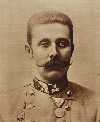 Nephew of Francis Joseph, emperor of Austria and king of Hungary, Ferdinand became heir apparent in 1896. While visiting Sarajevo, he and his wife were assassinated by Serbian nationalist Gavrilo Princip. Austria soon declared war on Serbia, prompting countries allied with Austria-Hungary—the Central Powers—and those allied with Serbia—the Triple Entente—to declare war on each other, precipitating WWI. The assassination was not the first attempt on his life. What had happened earlier that day?
Nephew of Francis Joseph, emperor of Austria and king of Hungary, Ferdinand became heir apparent in 1896. While visiting Sarajevo, he and his wife were assassinated by Serbian nationalist Gavrilo Princip. Austria soon declared war on Serbia, prompting countries allied with Austria-Hungary—the Central Powers—and those allied with Serbia—the Triple Entente—to declare war on each other, precipitating WWI. The assassination was not the first attempt on his life. What had happened earlier that day? 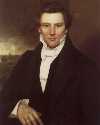 Smith was the founder of the Church of Jesus Christ of the Latter-day Saints. He established his first church in New York but was forced to move his headquarters to Ohio, Missouri, and then Illinois. In 1844, he announced his candidacy for the presidency of the US, but he was imprisoned for treason after his efforts to silence Mormon dissenters led to mob violence. While in jail, Smith and his brother were murdered by a mob. Who led the Mormons to Utah after his death?
Smith was the founder of the Church of Jesus Christ of the Latter-day Saints. He established his first church in New York but was forced to move his headquarters to Ohio, Missouri, and then Illinois. In 1844, he announced his candidacy for the presidency of the US, but he was imprisoned for treason after his efforts to silence Mormon dissenters led to mob violence. While in jail, Smith and his brother were murdered by a mob. Who led the Mormons to Utah after his death?